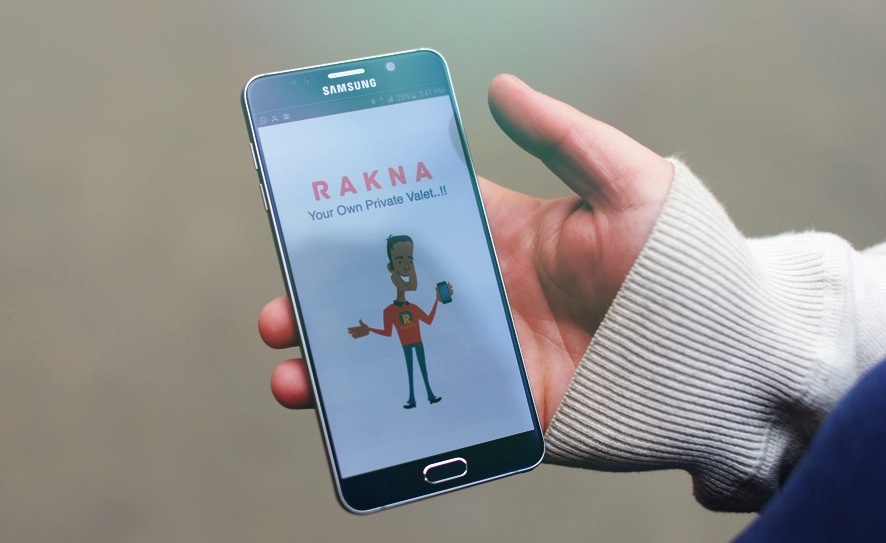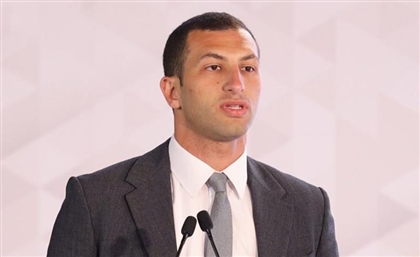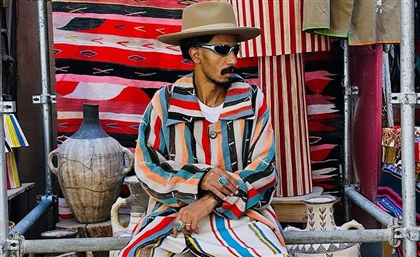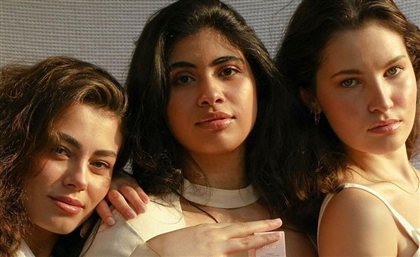Rakna: The Uber of Parking Is Almost Here
Never again will we be 15 minutes late for work because we couldn't find anywhere to park! Special thanks goes to Ahmed Zaki, big dreamer and Co-Founder of Rakna, a valet-on-demand app set to launch soon.

A recent study by the World Bank has revealed that Cairo’s perpetually congested traffic costs Egypt 47 billion LE every year; if you think that's not so bad, this figure is expected to reach 105 billion LE by 2030. “Limited parking capacity” is cited as one of the main causes of the city’s traffic problems. Now you can cite parking as a legitimate reason as to why you're late, and use the World Bank to back it up.
There is a reason why Cairo is among Forbes' top 10 cities to launch a startup that the American business magazine failed to mention: we have actual problems. Behind every startup there is an idea, and behind every idea there is a eureka moment an entrepreneur reaches after they have hit a wall.
A group of young entrepreneurs are investing in a solution to one of our biggest problems: parking. Ahmad Zaki is one of the founders of Rakna, an app to help Cairenes find the parking spots that have long eluded them. We sat down with him for answers to our most burning questions.

Tell us about the app.
The app is basically Uber for valets – it's a valet-on-demand service. We start in zones; the first zone is going to be Downtown, because it’s the area with the most public garages – you have Tahrir, Omar Makram, Bostan, Abdul Moneim Riad, and Ramses Hilton. Plus, we are going to start in the morning, from 8 AM to 5 or 6 PM; these are going to be our working hours, because people come here primarily to work rather than go out. If we go to Zamalek, we’re probably going to have to work nights! Since it’s a valet-on-demand service, you let us know where to meet you before you reach your destination, wherever that may be.
Right now we have a waiting list of 500 people, and we haven’t even launched yet but we did test the service at this year's Riseup Summit.
So who meets me?
A Rakna valet who is going to be wearing our jacket, and you get his picture, his name, his rating, and you get a security number that he has to recite back to you when you are actually there so you can give him your car. It’s like a security code. He waits for you in front of your destination, wearing our jacket (which is how you recognise the fella'); when you get there, he takes your car and parks it. Whenever you're ready to leave, you tell us [through the app]. Say you dropped off your car in one place, but you moved around and want to pick it up somewhere else? You let us know; we get it there.
How much does the service cost?
It's 10 LE for the first hour, and then three LE per hour until it reaches 30 – then we stop charging. So, it’s 30 LE per day, maximum.
How did the idea for Rakna come about and what is the ultimate goal for the app?
It didn’t start off like this; initially the idea was something else. I wanted to develop an app a few years ago, and started off with something like Bey2ollak. Then, one day, I was driving by Ma7atet Masr (train station) and noticed that there was a huge garage that they built and then demolished, so I got the idea then. I thought, "let’s do something about parking!" We had a very primitive idea and kept changing it, and we looked at other apps abroad until we reached this.
We want to be a platform just like Uber; we connect people to valets. The idea will eventually develop to allow the valets who work for us to open the app whenever they need or want to work – informing us they're online – and go to our working zone and start accepting people. What we do is to supply parking spaces. At first, we wanted to work with big parking lots - you don’t go to the garage, we take your car there and we pay for you. The other thing we want is for people to report free parking spots through the app so we can utilise them, but that’s a more advanced phase. For now, we need to guarantee our spots, so we work with parking lots and valets; all our valets are Rakna employees – they’re not outsourced – just to ensure the quality.
 Rakna testing their app at RiseUp Summit 2015.
Rakna testing their app at RiseUp Summit 2015.
How do you think this will impact 'soyaas'? How would that impact their livelihoods? How can you prevent the problems that Uber, for instance, is facing with taxi drivers, from happening to you?
I don’t think I need to prevent that because taxi drivers provide the same service as Uber and they are doing business legally; taxi drivers pay taxes. Soyaas don’t pay taxes, they're not legal, they don’t have papers, and most of the time they do more harm than good. I don’t think we are going to have legal problems, but we could have problems with soyaas; they could stir up problems in the streets. The way I see it, it is not going to be a problem at the beginning, because the concept of the app is that Rakna valets are going to be moving around. Once we’re big enough that they can actually notice us, then we are big enough to tell them "rou7ou 2el3abou be3eed." What I'm doing is trying to do all of this legally; I am talking to the government and the way I put it to them is that I’m going to help with the sayes issue.
How do you wish for your app to impact the economy?
Two things: providing work opportunities, and reducing the cost of traffic congestion. Let's take Uber as an example; you’re talking about 5000 – 7000 drivers who work for the transportation-tech giant, and these are people with cars. Now let’s dream big; if one day we become the Uber of parking, I’d imagine there are many more who don’t own cars and these are people that I can provide jobs for.
The other thing is traffic congestion, which costs us four per cent of our GDP. In LA, 30 to 40 per cent of people in a traffic jam are actually people looking for parking spots. So, if you eliminate these people, you eliminate a large portion of the traffic and actually save the country some money, even if people looking for parking spots only constitute 10 per cent of a traffic jam in Cairo.
You can find out more about Rakna on their website here, Facebook page here, or follow them on Instagram @rakna_app.
Photography by @MO4Network's #MO4Productions.
Photographer: Ahmed Najeeb.
- Previous Article Dr.Sisilove or How (Not) To Diffuse A Bomb
- Next Article Ibrahim Maalouf to Serenade Women at the Pyramids
Trending This Week
-
Apr 13, 2024
























